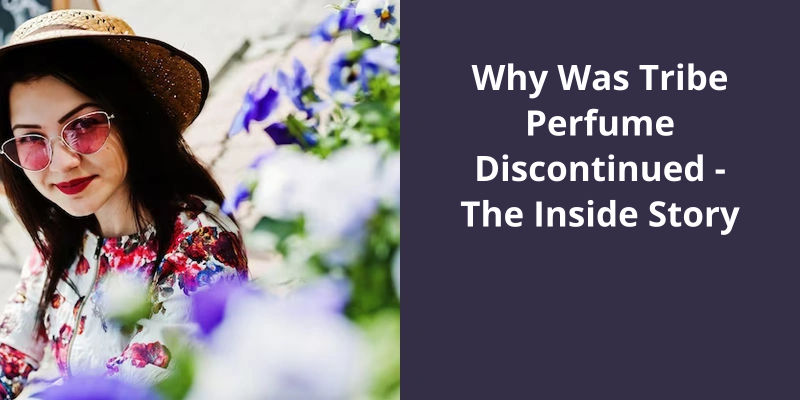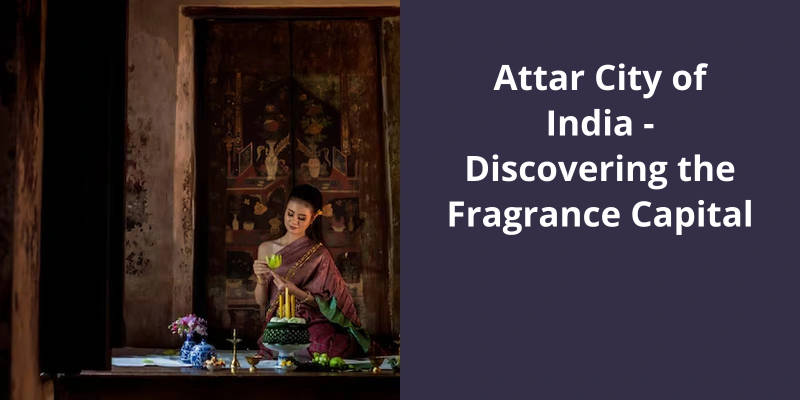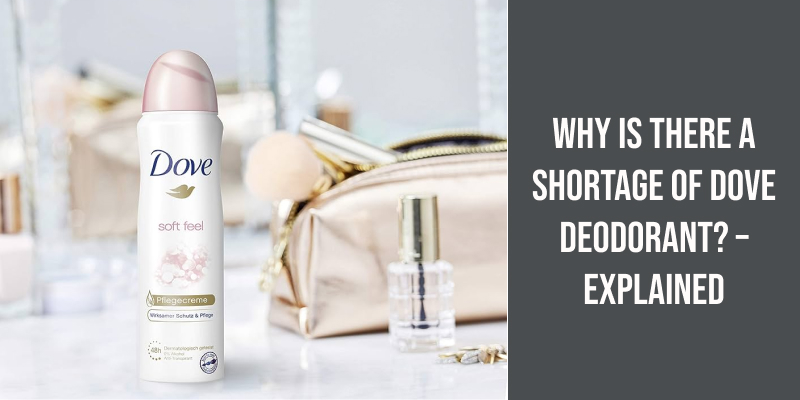Yes, Cologne commercials do actually work. They use a variety of psychological strategies to persuade people to buy their products. These ads often feature attractive models, luxurious settings, and romantic or adventurous narratives to create a favorable and desirable image around the product. Commercials capitalize on the fact that scents are closely linked to memory and emotion, promising consumers that their cologne can help them feel confident, desired, or powerful. The impact of these ads is enhanced by celebrity endorsements, adding a layer of aspiration and credibility. Thus, by associating the fragrance with positive contexts and emotions, commercials can effectively encourage potential customers to purchase a specific cologne.

Why Are Perfume Ads So Strange?
Perfume ads are strange because they’ve a unique way of presenting their product. The adverts often feature images of a beautiful woman or man in luxurious surroundings. This is because these adverts aim to appeal to a wide audience who desire to experience or embody luxury, sensuality, and opulence. The audience includes those who’re seeking to improve their image, attract a partner or improve their social status. The idea is to make viewers believe that by using their perfume, they’ll be able to attain or reflect these qualities.
They use abstract imagery or music to evoke emotions and sensations rather than focusing on the technical advantages of the product. Celebrities are often used in the advertisements to increase brand recognition and appeal to younger consumers. By understanding the psychology behind these ads, it becomes easier to comprehend why they appear so strange. Ultimately, these adverts are designed to convey a message that resonates with consumers on an emotional level while simultaneously promoting the brands core values and beliefs.
As a conscientious individual, you want to make sure that your cologne has just the right amount of impact. It’s important to find a balance between wearing too much and wearing too little. So, you might be asking yourself, “Is cologne meant to be noticed not announced?” Well, let’s explore this topic further.
Is Cologne Meant to Be Noticed Not Announced?
When it comes to cologne, subtlety is key. Nowadays, it’s easy to get carried away with the idea that the more scent you apply, the better. But this couldnt be further from the truth, especially if you want to make a lasting impression. A good cologne should be understated and subtle, something that enhances your natural aroma rather than overpowers it. If you want to make a statement, it’s better to do so with your fashion choices and attitude, rather than your fragrance.
Too much cologne can be overwhelming and can lead to negative reactions from others. It’s important to remember that people have different thresholds for scent, and what may seem subtle to you might be overpowering to someone else. When applying cologne, always start with a light spritz and add more if necessary. It’s better to err on the side of caution, especially if youre not sure how strong your cologne is.
When choosing cologne, consider the situation and audience. What’s appropriate for a night out with friends may not be suitable for a job interview or a first date. You might want to have different scents for different occasions. Knowing that youre wearing the right scent for the right occasion can help boost your self-assurance and make you stand out in a positive way.
It’s no secret that perfume adverts are known for their sensual imagery and suggestive messaging. However, what may surprise many is the science behind why these ads are so effective. Scent and sex are intricately linked, and our sense of smell can evoke powerful emotional responses. In this article, we’ll explore the fascinating connection between scent and sexuality, and how perfume brands use this to their advantage in their advertising campaigns.
Why Are Perfume Ads So Sensual?
The connection between scent and sex is deeply rooted in our biology. The olfactory system, responsible for detecting smells, is closely connected to the part of our brain that’s responsible for regulating sexual behavior and arousal. This link is so strong that studies have shown that smelling certain scents can actually trigger arousal and even orgasm. Perfume ads capitalize on this connection by using erotic imagery and suggestive language to create an association between their product and sexual desire.
Perfume ads often feature scantily clad models or celebrities engaging in provocative behavior, accompanied by sensual music and suggestive language. These ads are designed to tap into our primal desires and create a sense of longing and desire for the product being advertised. By linking their product to sexual desire, perfume companies can make their product seem more alluring and desirable.
These scents, such as vanilla, musk, and jasmine, are known for their aphrodisiac properties and have been used in perfumes and other products for centuries.
This allows them to appeal to a wider audience while still tapping into our primal desires and creating a sense of longing and desire for their product.
While they may not be able to tap into our noses, perfume ads know exactly how to tap into our emotions and desires.
How Perfume Companies Develop and Market Their Scents for Sexual Appeal
- Extensive research and analysis of current market trends in fragrance industry
- Identification of target demographic based on age, gender, and socio-economic status
- Collaboration with perfumers to create unique and alluring scent compositions
- Testing and refinement of fragrances through consumer feedback and focus groups
- Packaging design and branding that emphasizes sensuality and sex appeal
- Effective advertising and promotional campaigns through various channels
- Partnerships with celebrities and influencers to endorse fragrances and increase visibility
- Strategic distribution and placement in high-end retail stores and online platforms
It’s no secret that the fragrance industry is big business, with billions of dollars in sales each year. And a significant portion of that revenue goes toward advertising. But just how much do perfume companies spend on marketing their products? According to industry experts, the answer is staggering – an estimated $800 million annually. This massive investment supports a range of advertising strategies, from TV spots and magazine ads to in-store promotions and digital campaigns. Let’s take a closer look at how fragrance companies are putting their advertising dollars to work.
How Much Do Perfume Companies Spend on Advertising?
In todays world, the perfume market has emerged as one of the most profitable and flourishing industries. However, the competition in the industry is extremely fierce. In order to stay ahead in the game, perfume companies have to exhibit their products in the most creative and profitable manner. Advertising and marketing play a significant role in promoting new products in the market and for maintaining brand loyalty.
Perfume companies all over the world invest large amounts of money on advertising campaigns to attract buyers. Spending on advertising for fragrances is estimated to be around $800 million per year on an average. This amount includes costs related to developing new ad strategies, creating ads, and disseminating promotional campaigns.
The advertising methods chosen by perfume companies vary widely from the conventional methods to entirely new strategies. For instance, print ads in magazines are still one of the most used and trusted approaches. Besides, companies use TV commercials to target a wider audience. Fragrance companies are also leveraging social media platforms to reach out to their buyers. In-store sampling of their latest fragrances is also a widely used technique to attract prospective buyers.
Advertising isn’t only essential for promoting the perfume products but also plays a significant role in getting influencers to buy the product. Celebrity endorsements are always an excellent way to attract customers, and the world of fragrance has been no stranger to this trend. Endorsements from famous people help to create a buzz around the product, giving it the required exposure to attract buyers.
In addition to advertising, it’s essential that the fragrances marketed by these companies are of the highest quality and that they deliver what they promise. The smell of a perfume is subjective, and it’s ultimately the quality of the fragrance that decides whether the buyer will continue to use it or not. Hence, investing in research and development of fragrances is equally important.
The industry has become extremely competitive, and only those who can create the best products and market them to the masses can find success in this highly demanding market.
The Impact of Social Media Influencers in Promoting Perfumes
- Social media influencers have a significant impact on the promotion of perfumes.
- Many perfume brands collaborate with influencers to promote their products on various social media platforms.
- Influencers create content that showcases the perfume in a visually appealing manner, which grabs the attention of their followers.
- Their posts help increase brand visibility, create brand awareness and drive sales.
- Influencers also share their personal experiences and opinions on perfumes, which can also influence the buying decision of their followers.
- Perfume brands use the influencer’s followers as their primary target audience, as they’re most likely to be interested in their products.
- It’s essential for perfume brands to collaborate with the right influencers, who’ve a relevant audience and can create authentic content that aligns with the brand’s messaging.
It’s no secret that celebrities are often used as the face of fragrance campaigns. But what may surprise you is just how much they can cash in on these endorsements. While upfront payments of $3 million or more are common, it’s the percentage of sales that can really add up, with some earning 5 to 10 percent of total revenue. And when you consider just how successful some of these fragrances can be, it’s easy to see why celebrity endorsements are such a lucrative business.
How Much Do Celebs Get Paid for Perfume Ads?
Celebrity endorsed perfumes have long been a lucrative business in the fragrance industry. Many celebrities have gone on to launch their own perfume lines while others simply license their name to already established fragrances. But the question is, how much do celebrities actually get paid for doing perfume ads?
To put this in perspective, lets take the example of Jennifer Aniston. Aniston reportedly earned a whopping $5 million upfront for her deal with luxury fragrance brand, Loewe. With sales of the “Jennifer Aniston” perfume exceeding $100 million, she’d have earned an additional $5 to $10 million in royalties.
Similarly, Elizabeth Taylors fragrance empire was valued at over $1 billion after her death in 20Taylor made an estimated $200 million in royalties alone from her popular White Diamonds fragrance, which has been a top-seller for over two decades.
However, it’s important to keep in mind that not all celebrity perfumes are equally successful. In fact, many celebrity fragrances have been criticized for being poor quality and overpriced. Alicia Silverstones “The Kind Life” perfume, which was marketed as a vegan and eco-friendly scent, received negative reviews and failed to sell well.
In these cases, the celebrity is more involved in the development and marketing of the scent. For instance, Kim Kardashians “Kkw Fragrance” line has reportedly made her over $30 million since it’s launch in 2017.
Source: How Much Are Celebrities Making From Fragrance Lines?
Conclusion
Furthermore, the use of celebrity endorsements and visually captivating imagery can help create a memorable and effective campaign. While the specifics of the ad may not always align with the product being advertised, the overall message and feeling conveyed by the commercial can still have a strong impact on consumer purchasing behavior. The evidence suggests that they do, and when done well, they can create a powerful connection between the consumer and the brand.





